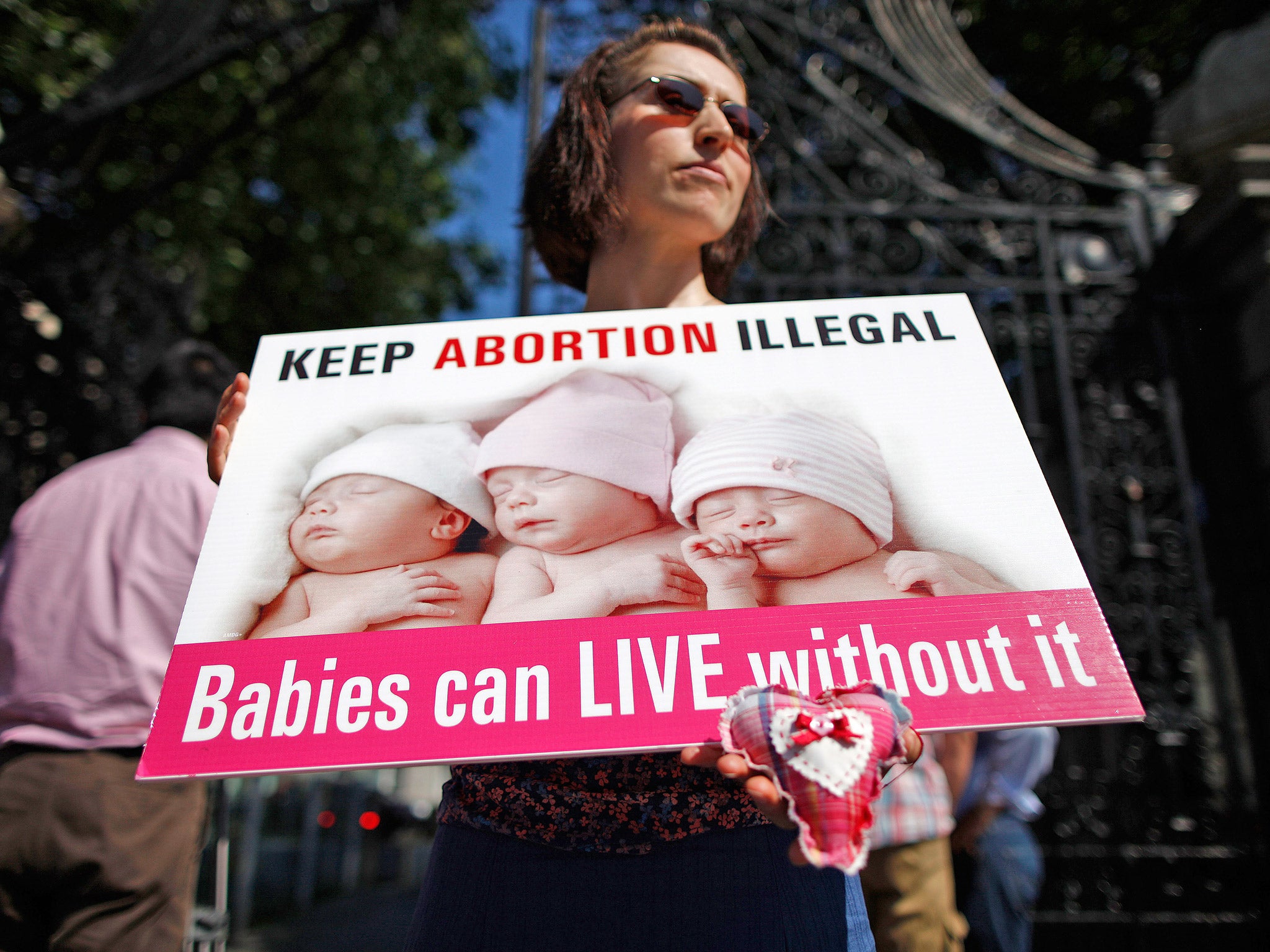At least ten women a day travel from Ireland to the UK to have an abortion
Ireland is one of the few countries in Europe that bans abortions

Your support helps us to tell the story
From reproductive rights to climate change to Big Tech, The Independent is on the ground when the story is developing. Whether it's investigating the financials of Elon Musk's pro-Trump PAC or producing our latest documentary, 'The A Word', which shines a light on the American women fighting for reproductive rights, we know how important it is to parse out the facts from the messaging.
At such a critical moment in US history, we need reporters on the ground. Your donation allows us to keep sending journalists to speak to both sides of the story.
The Independent is trusted by Americans across the entire political spectrum. And unlike many other quality news outlets, we choose not to lock Americans out of our reporting and analysis with paywalls. We believe quality journalism should be available to everyone, paid for by those who can afford it.
Your support makes all the difference.At least ten women and girls travel to Britain from Ireland every day to terminate pregnancies because of the country’s draconian abortion laws, new figures show.
The Department of Health statistics also reveal that, for the first time, more women in Britain now have abortions by taking a pill than by undergoing a surgical procedure. Non-surgical abortions accounted for 51 per cent of all terminations in England and Wales in 2014, compared to 49 per cent in 2013.
Abortions continue to fall gradually overall. The total number carried out in England and Wales last year was 184,571 – 0.4 per cent fewer than in 2013 and 0.6 per cent fewer than a decade earlier.
Ireland is one of the few countries in Europe that bans abortions – even in cases of rape, severe or fatal foetal impairment or risk to the mother’s health.
The latest figures show that 3,735 women and girls travelled from the Republic of Ireland last year to access abortions – as well as a further 837 from Northern Ireland, where abortion is also banned except in the most extreme circumstances.
The figures only cover terminations where patients have told the UK health authorities that they are from Ireland. Many other women will give the British address of a friend or relative – or simply order medical abortion pills online.
An Amnesty International study revealed the experiences of Irish women who have been forced to sidestep Ireland’s strict reproductive laws to seek treatment overseas.
Many suffered miscarriages but were forced to carry a dead or unviable foetus inside them for weeks while trying to get the healthcare they needed in Ireland.
Amnesty International’s secretary general, Salil Shetty, said: “The human rights of women and girls are violated on a daily basis because of a constitution that treats them like childbearing vessels.
“Women and girls who need abortions are treated like criminals, stigmatised and forced to travel abroad, taking a serious toll on their mental and physical health. The Irish state can no longer ignore this reality.”
The Abortion Support Network, which helps women travel to the UK from Ireland, received 552 calls from women seeking support to access abortion in Britain in 2014 – a 520 per cent increase on five years ago. Director Mara Clarke said: “We’ve heard time and time again from women forced by the despair induced by a combination of poverty and draconian abortion laws who have taken matters into their own hands – by ingesting chemicals, by overdosing on medications, by drinking excessively, by literally throwing themselves down stairs to try and induce miscarriage.”
Ireland’s reproductive laws do not only affect those needing abortion. One woman told Amnesty that when she was “gravely ill” in the late stages of pregnancy, she was refused a C-section for fear that it would harm her foetus. Instead, she had to endure 36 hours of labour because the hospital’s job was “to look after the baby, the baby comes first”. She said: “I would fear for my life to have another child in Ireland.”
Dr Peter Boylan, former clinical director of Ireland’s National Maternity Hospital said: “Under the [current law] we must wait until women become sick enough before we can intervene. How close to death do you have to be? There is no answer to that.”